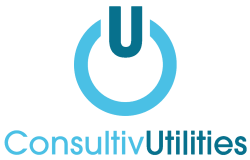In recent years, the education sector has faced unprecedented challenges due to rising energy costs. The impact of a volatile energy market has hit schools, colleges, and universities hard, straining already stretched budgets and diverting funds from essential resources and staffing.
The current situation
According to recent government insights, the education sector seen a 52.1% increase in energy prices in 2022-23 compared to 2021-22. With forecasts suggesting a 6.2% increase between 2023-24 and 2024-25. This means that energy costs are now consuming a larger portion of budgets, making it challenging for educational providers to maintain their standards of teaching and support services.
How energy brokers can help
With the need to manage budgets more effectively, many education providers are seeking innovative solutions to optimise their energy use – this is where energy brokers can provide significant value.
Energy brokers specialise in understanding the complexities of the energy market and finding tailored solutions for each business. For education providers, who often lack the time and expertise to navigate these markets, energy brokers offer several key benefits:
Tailored energy procurement strategies: Brokers have in-depth knowledge of the fluctuating energy market. By conducting a comprehensive market analysis, they can identify opportunities to secure tailored deals.
With every educational institution having different energy consumption patterns depending on the size of the facility, the number of buildings, and operating hours. Energy brokers take the time to understand these specific requirements and recommend procurement strategies that align with the institution’s goals. Whether it’s choosing renewable energy options to support sustainability initiatives or selecting contracts that provide budget certainty, they can help create a strategy that meets both financial and operational objectives.
Monitoring and managing energy costs: Energy brokers don’t just secure contracts; they also offer ongoing support to ensure that education providers are managing their energy usage effectively. This includes providing regular reports on consumption, identifying areas where energy efficiency can be improved, and advising on energy-saving initiatives. With this data-driven approach, educators can gain better visibility into their energy usage and take proactive steps to reduce costs.
Mitigating risk and ensuring compliance: The energy market can be volatile, and sudden price increases can have a severe impact on educational budgets. Energy brokers help mitigate this risk by advising on risk management strategies. Additionally, they ensure that education providers remain compliant with any regulatory changes, such as new sustainability standards or carbon reduction targets, which can otherwise be difficult to navigate.
Supporting sustainability goals: As the education sector places increasing emphasis on sustainability and environmental responsibility on the journey to net-zero by 2030, many providers are looking to incorporate more green energy into their procurement strategies. Energy brokers can facilitate this transition by sourcing renewable energy contracts and advising on ways to integrate sustainable energy sources. This not only helps reduce organisations carbon footprint but can also result in long-term financial benefits as renewable energy options become more cost competitive.
How we can help
Given the complexity of the energy market and the significant impact of rising costs, it’s clear that education providers need a strategic partner who can help them navigate these challenges. By partnering with Consultiv, schools, colleges, and universities can gain access to a wealth of market knowledge, tailored energy solutions, and ongoing support. Want to know more about how we can help your educational organisation? Read our dedicated utility solutions for education providers page.
Categories:

